
Nassau and Paradise Island: The Jewel of The Bahamas
Welcome to Nassau, the vibrant capital of The Bahamas, and its enchanting neighbor, Paradise Island. These twin destinations offer a perfect blend of rich history, cultural experiences, and stunning natural beauty. Nassau, with its colonial architecture and lively straw markets, invites you to explore its colorful streets and learn about its intriguing past. The city is home to the legendary Queen's Staircase and the historic Fort Fincastle, both offering panoramic views of the island. Just a short bridge away lies Paradise Island, a haven for beach lovers and luxury seekers alike. This island is famous for its pristine beaches, crystal-clear waters, and the iconic Atlantis Resort, which features a world-renowned water park and an impressive marine habitat. Whether you're looking to relax on the powdery sands of Cabbage Beach, dive into adventure with water sports, or indulge in high-end dining and shopping, Paradise Island has something for everyone. Together, Nassau and Paradise Island present a unique combination of adventure, relaxation, and Bahamian culture. From exploring the vibrant local markets to unwinding by the turquoise ocean, these destinations promise an unforgettable tropical getaway.
Local tips in Nassau and Paradise Island
- Visit early in the morning to avoid the crowds at popular attractions like the Queen's Staircase and Fort Fincastle.
- Don't miss the local Junkanoo festival if you visit during Christmas or New Year for an authentic cultural experience.
- Try the local seafood at Arawak Cay, also known as 'Fish Fry,' for a taste of authentic Bahamian cuisine.
- Bring cash for purchases at the Straw Market and smaller vendors, as not all accept credit cards.
- Consider booking a day pass to the Atlantis Resort to enjoy its water park and marine exhibits without staying overnight.
Nassau and Paradise Island: The Jewel of The Bahamas
Welcome to Nassau, the vibrant capital of The Bahamas, and its enchanting neighbor, Paradise Island. These twin destinations offer a perfect blend of rich history, cultural experiences, and stunning natural beauty. Nassau, with its colonial architecture and lively straw markets, invites you to explore its colorful streets and learn about its intriguing past. The city is home to the legendary Queen's Staircase and the historic Fort Fincastle, both offering panoramic views of the island. Just a short bridge away lies Paradise Island, a haven for beach lovers and luxury seekers alike. This island is famous for its pristine beaches, crystal-clear waters, and the iconic Atlantis Resort, which features a world-renowned water park and an impressive marine habitat. Whether you're looking to relax on the powdery sands of Cabbage Beach, dive into adventure with water sports, or indulge in high-end dining and shopping, Paradise Island has something for everyone. Together, Nassau and Paradise Island present a unique combination of adventure, relaxation, and Bahamian culture. From exploring the vibrant local markets to unwinding by the turquoise ocean, these destinations promise an unforgettable tropical getaway.
When is the best time to go to Nassau and Paradise Island?
Iconic landmarks you can’t miss
Atlantis Paradise Island Bahamas
Experience luxury, adventure, and vibrant nightlife at Atlantis Paradise Island, a premier resort destination in the heart of the Bahamas.
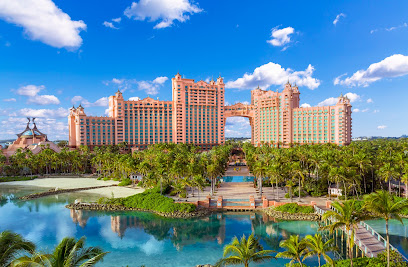
Nassau Straw Market
Explore the vibrant Nassau Straw Market, where the essence of Bahamian culture meets unique handmade treasures waiting to be discovered.
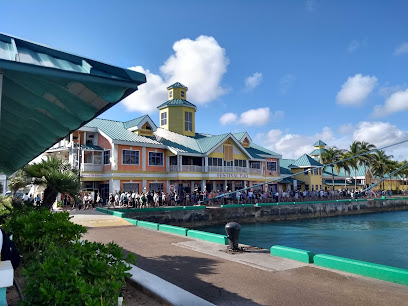
Queen's Staircase
Explore the Queen's Staircase in Nassau, a historical landmark that connects you to the rich heritage and stunning views of the Bahamas.
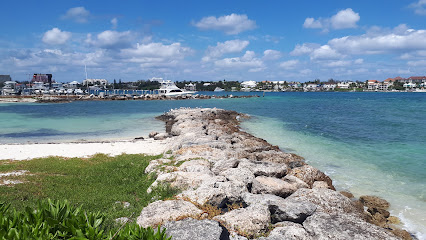
Blue Lagoon Island Bahamas
Experience the beauty of Blue Lagoon Island in the Bahamas, a paradise for relaxation, adventure, and unforgettable memories amidst nature's splendor.
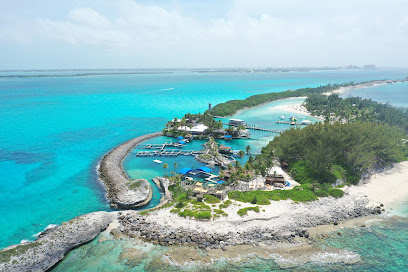
Hotel Riu Palace Paradise Island
Discover luxury and adventure at Hotel Riu Palace Paradise Island, your ultimate Bahamian getaway with stunning beaches and world-class amenities.
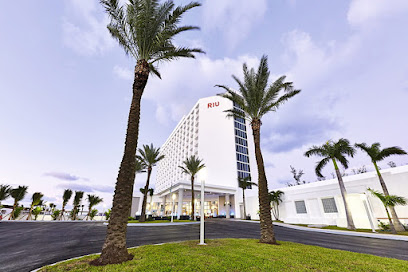
Warwick Paradise Island - Bahamas
Discover unparalleled luxury and relaxation at Warwick Paradise Island, an adults-only oasis in the heart of the Bahamas, perfect for a romantic getaway.
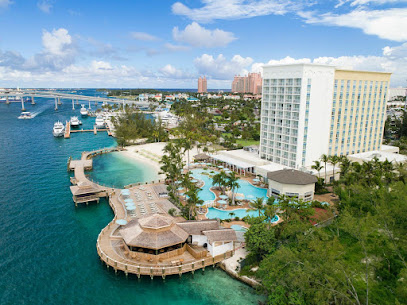
The Royal at Atlantis
Discover The Royal at Atlantis: A luxurious paradise offering thrilling water adventures, fine dining, and unforgettable experiences in the heart of the Bahamas.

Grand Hyatt Baha Mar
Discover the ultimate blend of luxury and adventure at Grand Hyatt Baha Mar, a stunning resort in Nassau, Bahamas, featuring a casino, golf course, and water park.
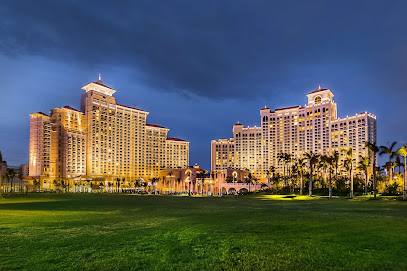
The Cove at Atlantis
Experience luxury at The Cove at Atlantis, a premier resort in Paradise Island offering stunning ocean views, top-notch amenities, and unforgettable adventures.

Pirates of Nassau
Experience the thrilling history of piracy at the Pirates of Nassau Museum, where adventure and education intertwine in the heart of the Bahamas.
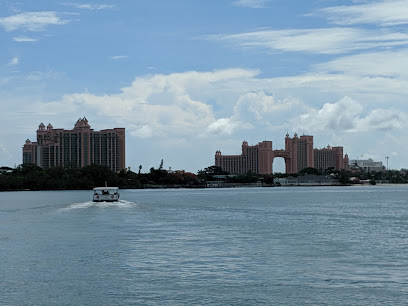
Junkanoo Beach
Discover the vibrant beauty of Junkanoo Beach, Nassau's coastal gem with stunning views, delicious food, and thrilling water sports.
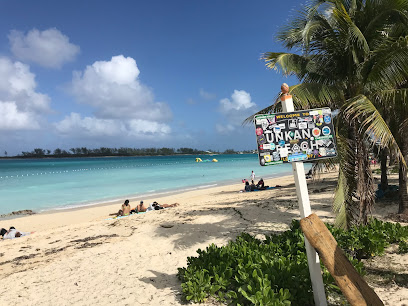
Fort Montague
Explore Fort Montague, a historic gem in Nassau, Bahamas, where military history meets stunning ocean views in a beautifully preserved setting.
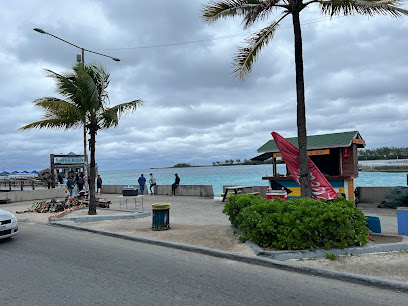
Ardastra Gardens & Wildlife Conservation Centre
Discover the lush paradise of Ardastra Gardens & Wildlife Conservation Centre, a unique conservation haven in Nassau, showcasing exotic wildlife and stunning gardens.
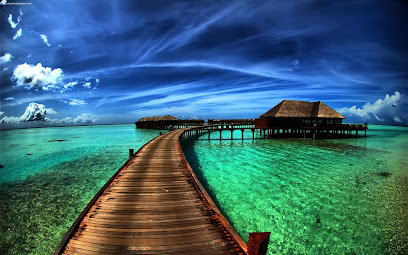
Aquaventure
Explore the thrilling Aquaventure water park at Atlantis Paradise Island, featuring exhilarating slides, lazy rivers, and unique marine experiences.
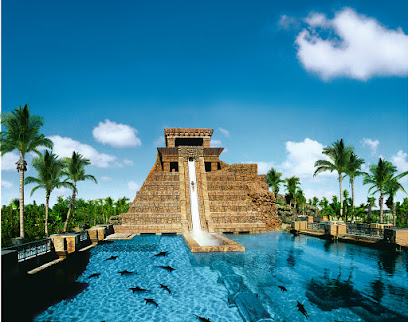
Dolphin Encounters
Explore the enchanting underwater world at Dolphin Encounters on Paradise Island, where unforgettable dolphin interactions await you in the Bahamas.
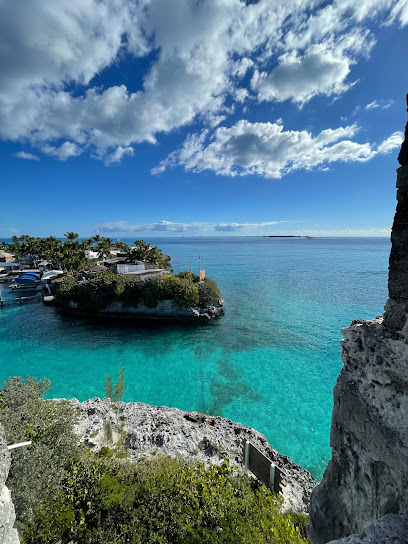
Unmissable attractions to see
Blue Lagoon Island Bahamas
Discover the enchanting beauty and thrilling adventures of Blue Lagoon Island in the Bahamas, a paradise for relaxation and exploration.
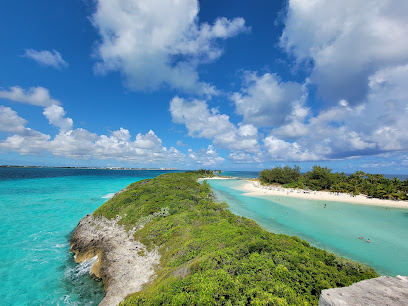
Aquaventure
Experience the ultimate aquatic adventure at Aquaventure, the premier water park in Paradise Island, Bahamas, with thrilling slides and beautiful beaches.
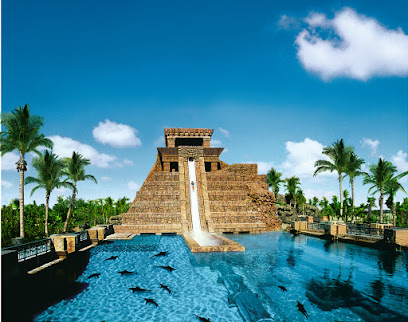
Powerboat Adventures - Exuma
Experience the thrill of the Bahamas with Powerboat Adventures, your gateway to exploring the stunning Exuma Cays and vibrant marine life.
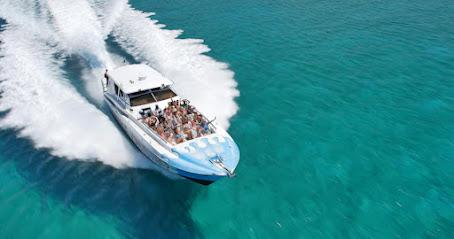
Bahamas Dolphin Adventure
Unleash your adventurous spirit at the Bahamas Dolphin Adventure, where unforgettable encounters with dolphins await in paradise.
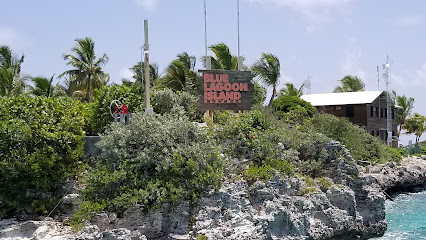
Predator Lagoon
Explore the underwater wonders of Predator Lagoon at Atlantis Paradise Island, where adventure meets marine education in a captivating aquarium experience.
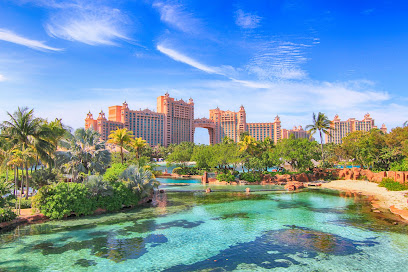
Turtle Point
Discover the natural beauty and adventure of Turtle Point in Paradise Island, Nassau, where crystal-clear waters meet lush landscapes in a tropical paradise.
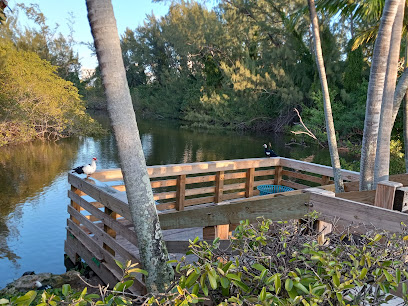
The Current: Baha Mar Gallery and Art Center
Discover the vibrant art scene at The Current: Baha Mar Gallery and Art Center, showcasing local and international talents in a stunning oceanfront setting.
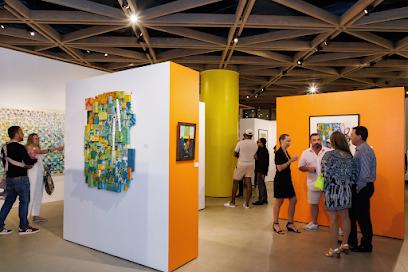
Sea Trek Helmet Diving
Discover the wonders of the underwater world with Sea Trek Helmet Diving on Paradise Island, a haven for adventurers and marine enthusiasts alike.
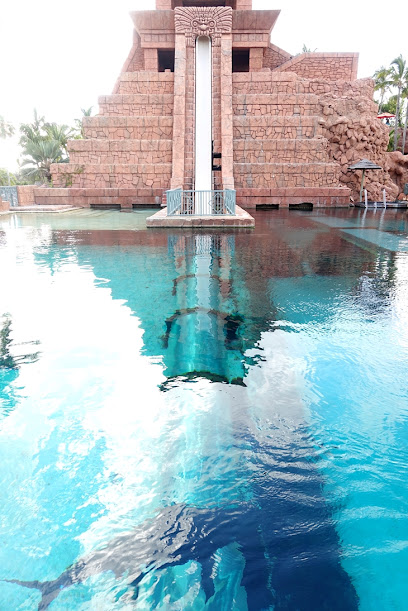
Conch Pearl Entertainment
Experience the vibrant nightlife and unique cocktails at Conch Pearl Entertainment in Nassau, where Bahamian culture comes alive in a lively bar setting.
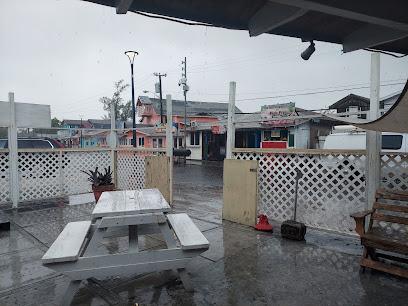
Sacred Space
Experience peace and natural beauty at Sacred Space, Nassau's serene retreat for travelers seeking a tranquil escape amidst vibrant Bahamian culture.
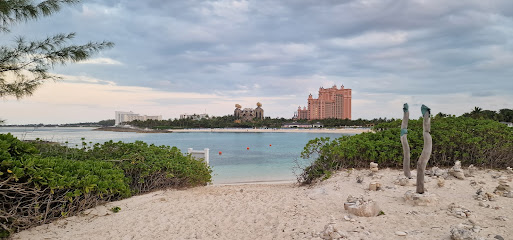
AquaMaze Bahamas (Clear Kayaks)
Explore the shimmering waters and pristine sands of Jaws Beach in Nassau, the ultimate destination for water sports and relaxation in the Bahamas.
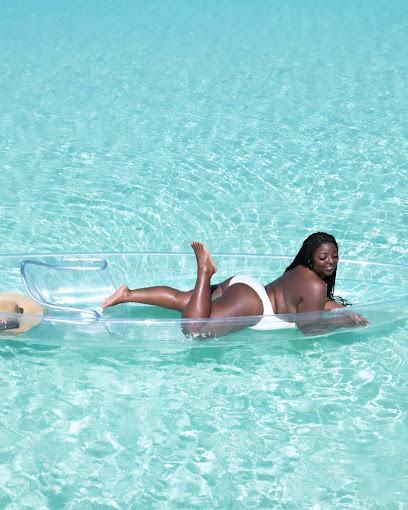
Pool
Experience the serene beauty of Nassau's Pool, a tranquil tourist attraction perfect for relaxation and leisure in the heart of the Bahamas.
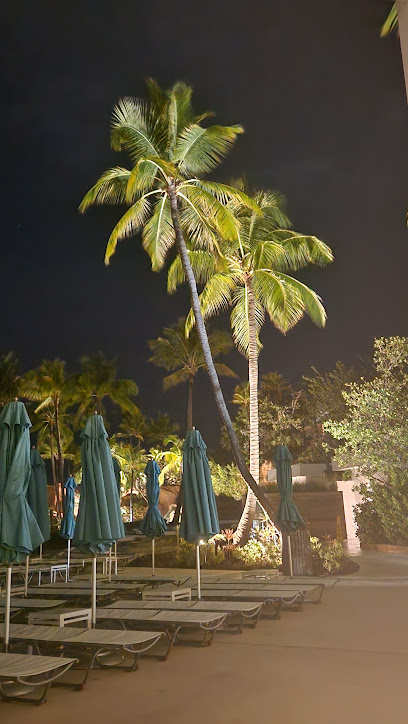
Beach
Discover Nassau's breathtaking beach, where pristine sands and crystal-clear waters create a tropical paradise for relaxation and adventure.
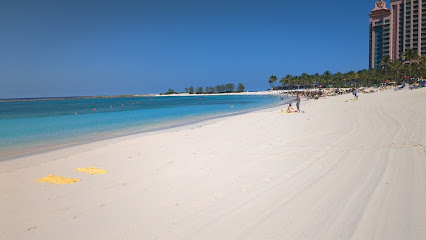
Paralia Bahamas
Discover the serene beauty of Paralia Bahamas on Rose Island, a perfect blend of relaxation and adventure amidst stunning tropical landscapes.
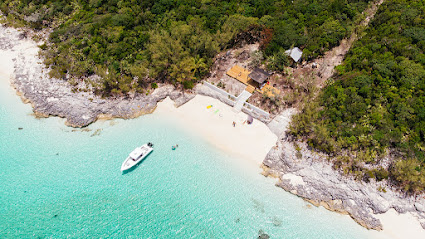
McCutcheon Tower
Experience breathtaking views and rich heritage at McCutcheon Tower in Blue Lagoon, the perfect blend of adventure and relaxation.
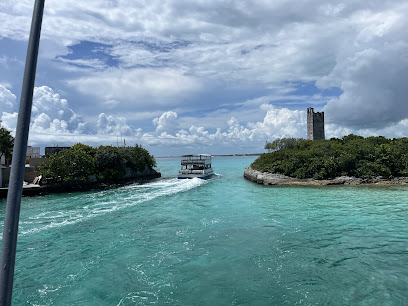
Essential places to dine
Poop Deck
Discover The Poop Deck in Nassau for an unforgettable seafood experience with stunning ocean views and authentic Bahamian flavors.
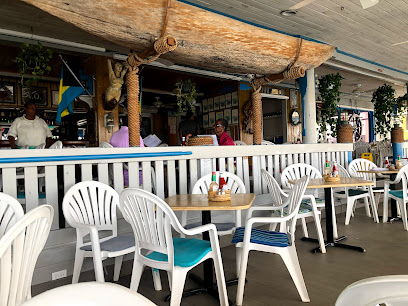
Latitudes
Experience exquisite Bahamian cuisine at Latitudes in Nassau - where local flavors meet exceptional service.
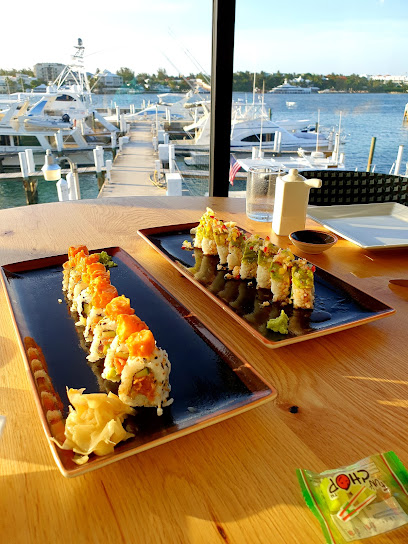
Viola's bar and grill
Experience delicious Bahamian cuisine at Viola's Bar and Grill on Paradise Island – where flavor meets breathtaking views.
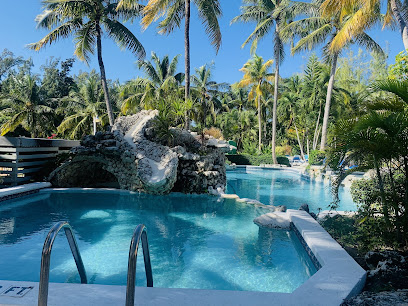
Nobu
Discover the exquisite fusion of tradition and innovation at Nobu, Paradise Island's premier Japanese dining destination.
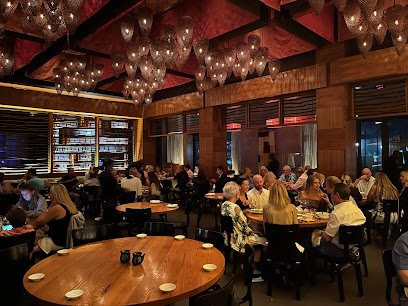
Dune
Experience exquisite seafood dining at Dune on Paradise Island – where culinary excellence meets breathtaking ocean views.
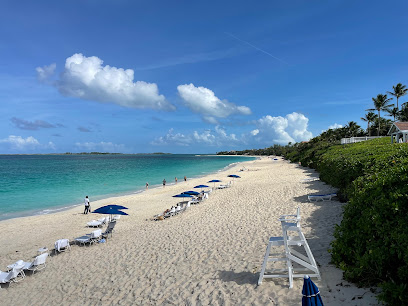
Anthony's Seafood and Ribs
Experience authentic Bahamian flavors at Anthony's Seafood and Ribs on Paradise Island – where fresh seafood meets succulent ribs in a vibrant setting.
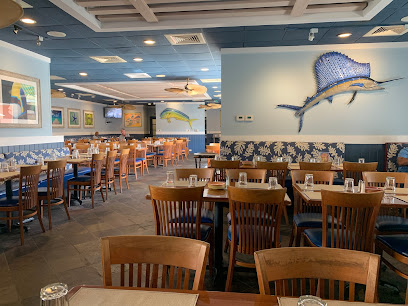
Seafire Steakhouse
Discover unparalleled luxury and taste at Seafire Steakhouse on Paradise Island – where every bite is an experience.
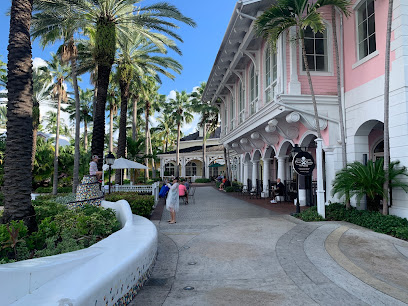
Poseidon’s Table
Experience the ultimate buffet at Poseidon's Table in Paradise Island – where global flavors meet Bahamian hospitality.
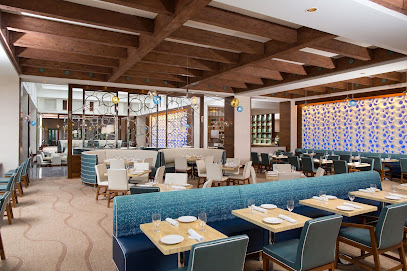
Carmine's
Experience authentic Italian cuisine at Carmine's in Atlantis Resort, Paradise Island - where every meal feels like a celebration.
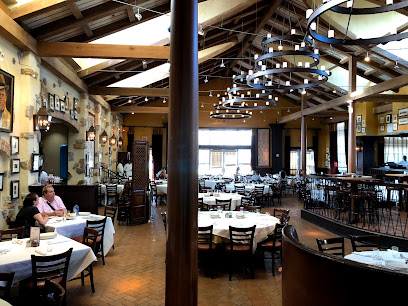
Fish by José Andrés
Experience exceptional seafood dining at Fish by José Andrés in Paradise Island – where culinary innovation meets Bahamian flavors.
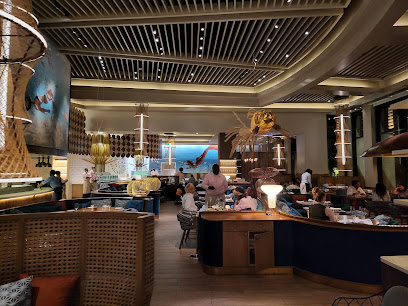
The Village Burger Shack
Discover gourmet burgers infused with Caribbean flavors at The Village Burger Shack on Paradise Island - a must-visit culinary destination!
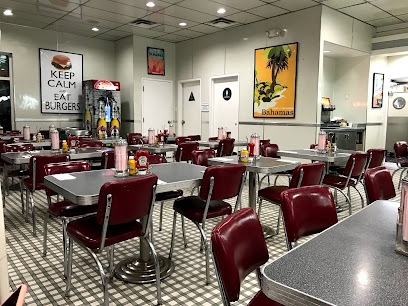
Café Martinique
Experience exquisite French cuisine amidst breathtaking views at Café Martinique on Paradise Island.
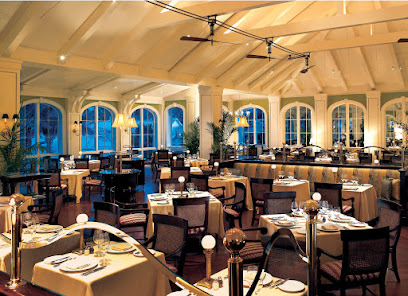
Chop Stix
Experience culinary excellence at Chop Stix on Paradise Island - where Asian fusion meets luxury dining.
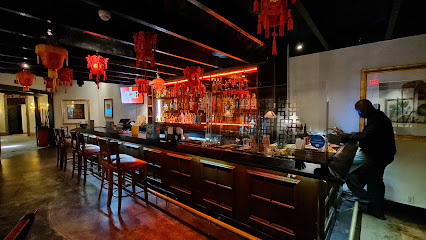
Cabbage Beach Bistro and Marketplace
Experience exquisite Indian-American cuisine at Cabbage Beach Bistro and Marketplace on Paradise Island, where culinary delights meet breathtaking ocean views.
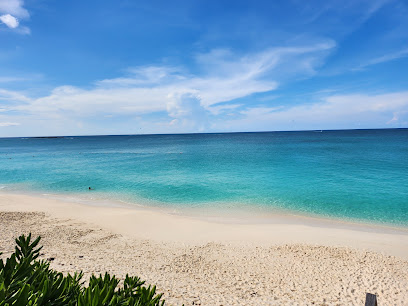
Sun and Ice Ice Cream Parlour
Experience paradise with every scoop at Sun and Ice Ice Cream Parlour in Nassau – where tropical flavors meet sweet indulgence.
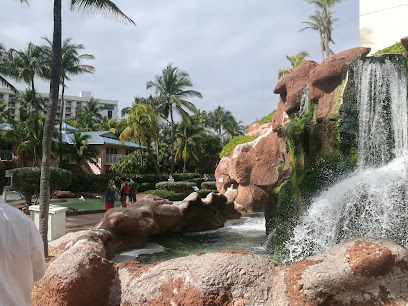
Markets, malls and hidden boutiques
Crystal Court Shops
Explore the elegance of Crystal Court Shops at Atlantis, where luxury shopping meets Bahamian culture in Paradise Island.
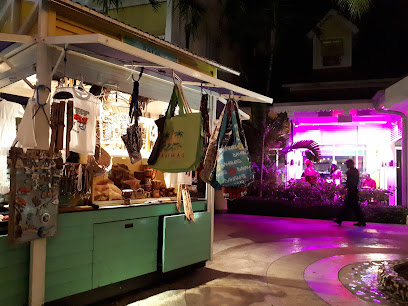
Marina Village at Atlantis
Experience the charm of Marina Village at Atlantis, a vibrant shopping and dining destination on Paradise Island, Nassau, with stunning waterfront views.
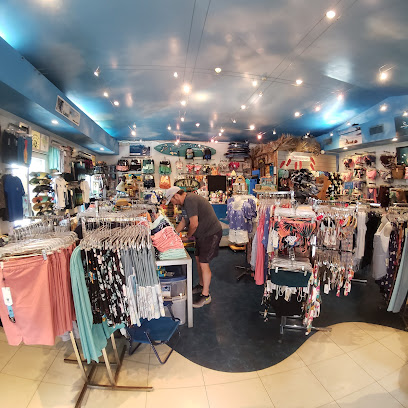
Paradise Shopping Plaza
Paradise Shopping Plaza: A vibrant shopping and dining destination in Nassau, where local charm meets international flair.
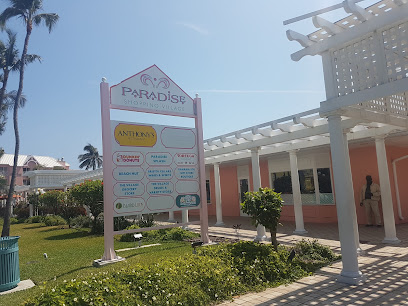
Mini Mart
Discover the flavors of Paradise Island at Mini Mart, your go-to deli for fresh bites and local treats in Nassau.
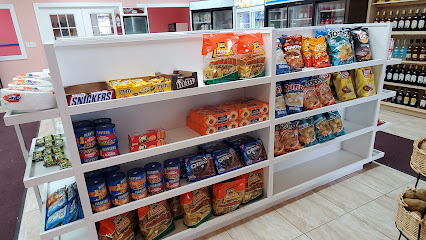
Cole's of Nassau
Explore Cole's of Nassau for exquisite women's fashion and accessories, reflecting the vibrant culture and style of the Bahamas.
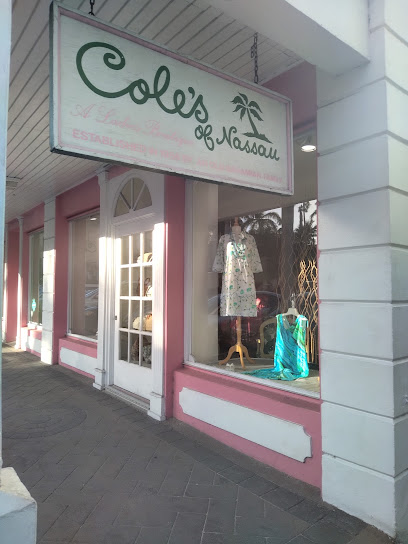
Da Market
Experience the vibrant spirit of the Bahamas at Da Market, your go-to gift shop for unique souvenirs and local crafts.
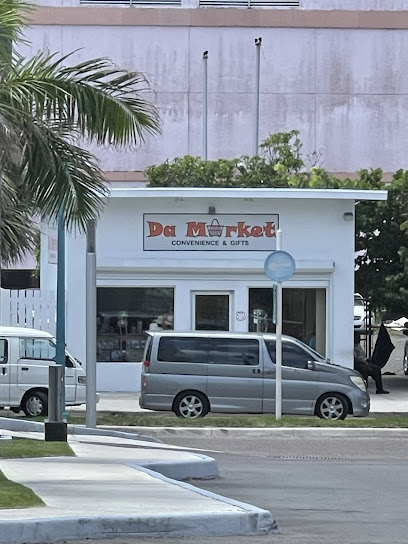
Mini Straw Market
Discover the heart of Bahamian craftsmanship at the Mini Straw Market, your go-to destination for unique souvenirs and cultural treasures.
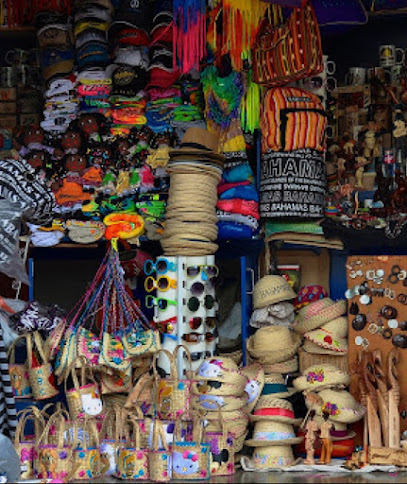
Bahamas Craft Center
Explore authentic Bahamian craftsmanship and unique souvenirs at the Bahamas Craft Center, a vibrant hub for local artisans and cultural treasures.
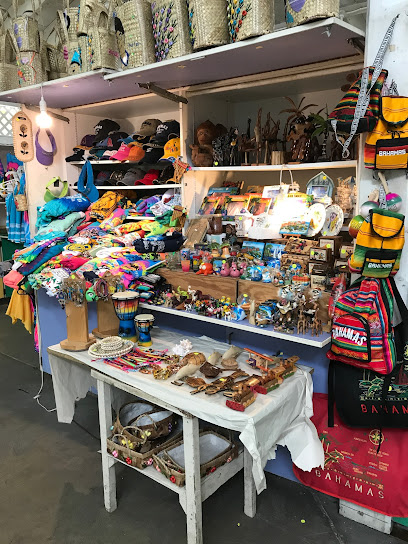
Atlantis Signatures
Explore Atlantis Signatures in the Bahamas for unique gifts and local crafts that capture the essence of your tropical adventure.
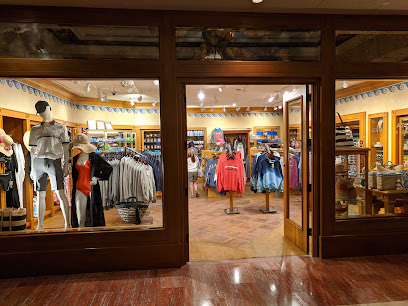
Gucci
Experience luxury shopping at Gucci in Atlantis Paradise Island, where style meets sophistication in an elegant boutique setting.
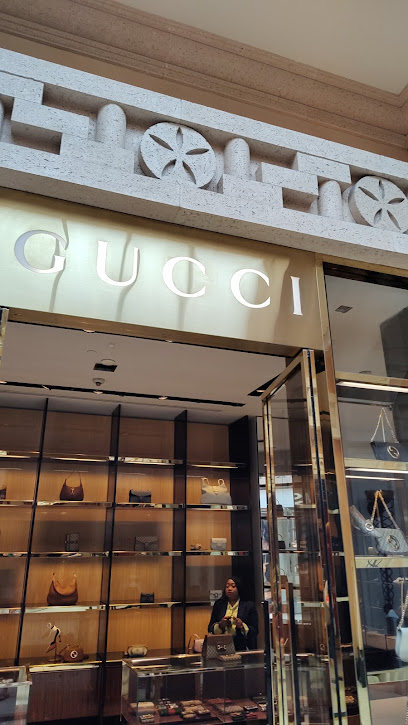
Tortuga Rum Factory - Retail Outlet
Experience the rich flavors of the Caribbean at Tortuga Rum Factory, where rum cakes and spirits come together in a delightful shopping experience.
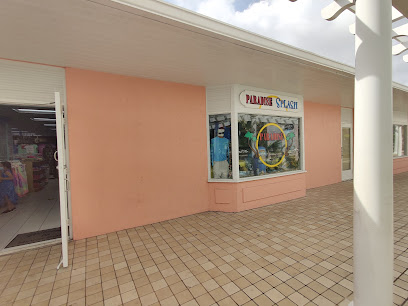
Sundries
Discover unique clothing and accessories at Sundries, your go-to destination for vibrant shopping on Paradise Island.
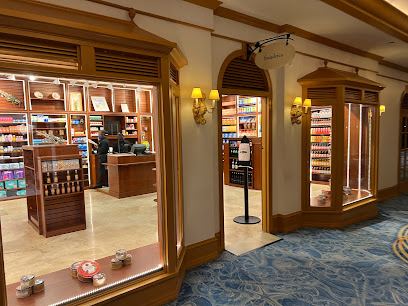
Paradise Splash
Explore the vibrant culture of the Bahamas with unique souvenirs and local crafts at Paradise Splash, Nassau's must-visit gift shop.
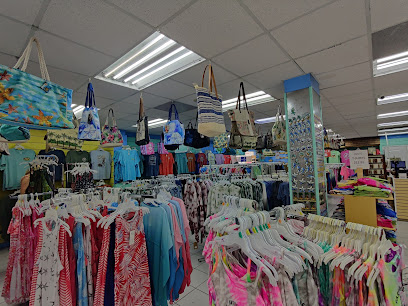
Saint Laurent
Discover luxury and style at Saint Laurent, the premier boutique nestled within the Atlantis Resort on Paradise Island, Bahamas.
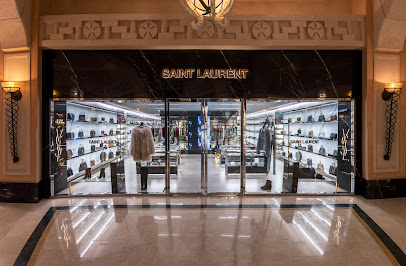
Aqua Soleil
Discover unique Bahamian fashion at Aqua Soleil, a clothing store on Paradise Island, Nassau, blending local culture with stylish apparel.
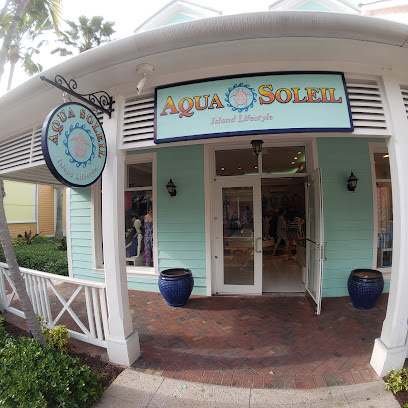
Essential bars & hidden hideouts
Señor Frog's | Nassau
Discover the lively nightlife and delicious cuisine at Señor Frog's, Nassau's premier destination for fun and flavor in the Bahamas.
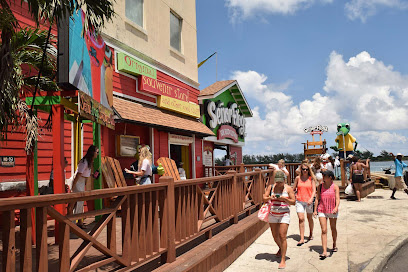
The Green Parrot - Harbour Front
Experience the vibrant flavors and lively atmosphere of The Green Parrot on the stunning harbourfront in Nassau, a must-visit culinary destination.
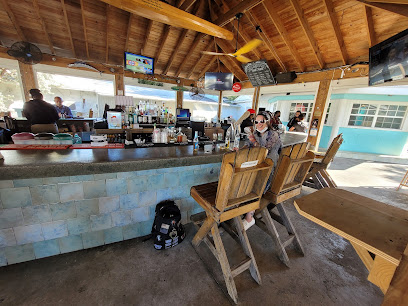
Pirate Republic Brewing
Discover the vibrant flavors of the Bahamas at Pirate Republic Brewing, where handcrafted beers and local cuisine meet the spirit of adventure.
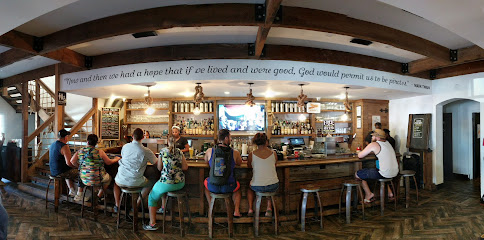
Latitudes
Experience the vibrant flavors of the Bahamas at Latitudes, a culinary gem in Nassau offering fresh, locally sourced dishes in a welcoming atmosphere.
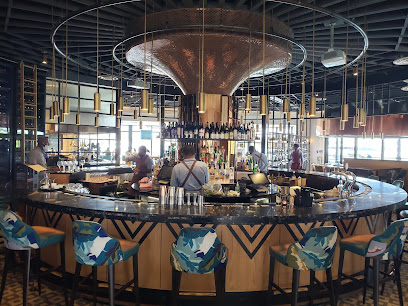
Viola's bar and grill
Discover Viola's Bar and Grill on Paradise Island for an unforgettable dining experience infused with local flavors and stunning ocean views.
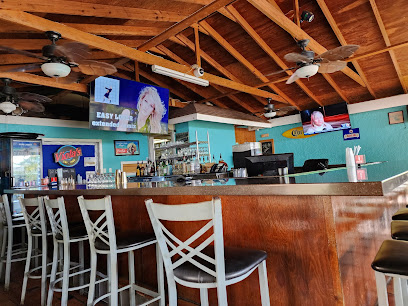
Curly's Restaurant and Bar
Experience the vibrant flavors of the Caribbean at Curly's Restaurant and Bar in Nassau, serving delicious seafood and tropical drinks in a welcoming atmosphere.
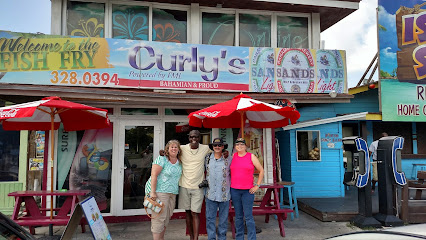
The Bearded Clam Sports Bar & Restaurant
Discover the vibrant flavors of the Bahamas at The Bearded Clam Sports Bar & Restaurant in Nassau, a culinary haven for food lovers.
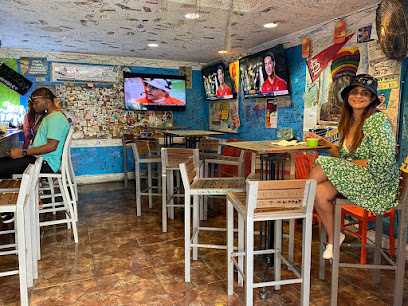
The Crew Pub
Discover the vibrant atmosphere of The Crew Pub in Nassau, where local flavors meet lively entertainment in a charming nautical setting.
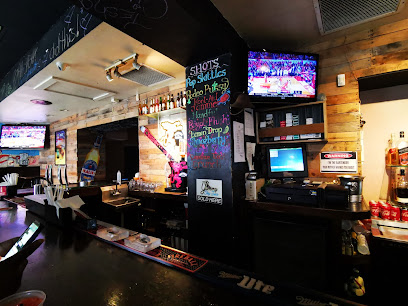
The Dilly Club
Experience the vibrant atmosphere and refreshing cocktails at The Dilly Club on Paradise Island, the perfect bar for relaxation and socializing.
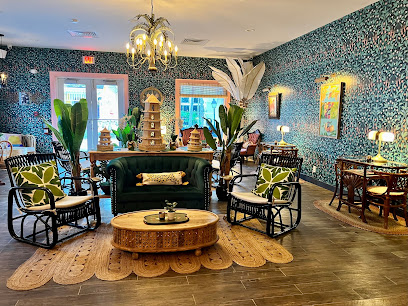
Cabbage Beach Bistro and Marketplace
Experience the vibrant fusion of Indian and American flavors at Cabbage Beach Bistro, your culinary oasis on Paradise Island.
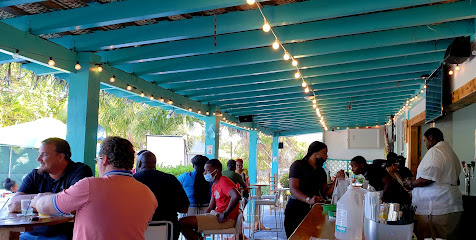
Paranza
Discover the culinary artistry of Paranza on Paradise Island, where fresh seafood meets exquisite dining in a stunning tropical setting.
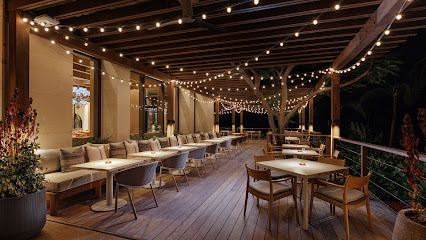
Aura Nightclub
Discover the electrifying nightlife at Aura Nightclub, Paradise Island's premier destination for music, dancing, and vibrant social scenes.
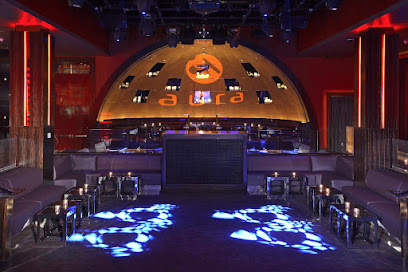
Island Delight
Discover the vibrant tropical vibes at Island Delight, a premier bar in Nassau, Bahamas, serving refreshing cocktails and local flavors.
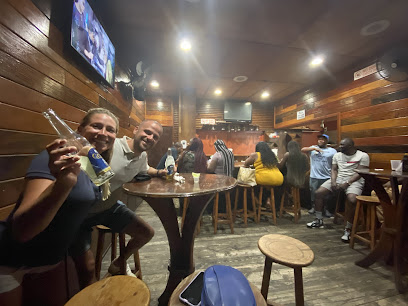
Lagoon Bar & Grill
Experience the taste of the Bahamas at Lagoon Bar & Grill, where casual dining meets tropical paradise on beautiful Paradise Island.
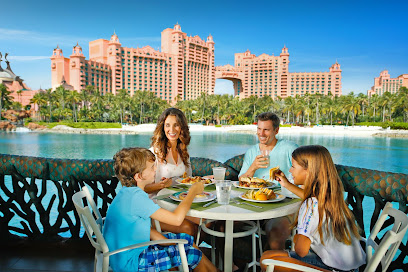
Local Phrases about Nassau and Paradise Island
-
- HelloHey
[hey] - GoodbyeGoodbye
[guhd-bye] - YesYes
[yes] - NoNo
[no] - Please/You're welcomePlease/You're welcome
[pleez/yoor wel-kum] - Thank youThank you
[thank yoo] - Excuse me/SorryExcuse me/Sorry
[eks-kyoos mee/sor-ee] - How are you?How you doin'?
[how yoo doo-in] - Fine. And you?Fine. And you?
[fyn. and yoo?] - Do you speak English?You speak English?
[yoo speek ing-lish?] - I don't understandI don't get it
[i dohnt get it]
- HelloHey
-
- I'd like to see the menu, pleaseI'd like to see the menu, please
[i'd like to see the menu, pleez] - I don't eat meatI don't eat meat
[i dohnt eet meet] - Cheers!Cheers!
[cheers] - I would like to pay, pleaseI would like to pay, please
[i wood like to pay, pleez]
- I'd like to see the menu, pleaseI'd like to see the menu, please
-
- Help!Help!
[help] - Go away!Go 'way!
[go way] - Call the Police!Call the Police!
[call de police] - Call a doctor!Call a doctor!
[call a doctor] - I'm lostI lost
[i lost] - I'm illI sick
[i sick]
- Help!Help!
-
- I'd like to buy...I'd like to buy...
[i'd like to buy] - I'm just lookingI'm just lookin'
[i'm just look-in] - How much is it?How much is dat?
[how much is dat] - That's too expensiveDat too pricey
[dat too pricey] - Can you lower the price?Can you drop de price?
[can you drop de price]
- I'd like to buy...I'd like to buy...
-
- What time is it?What time it be?
[what time it be] - It's one o'clockIt one o'clock
[it one o'clock] - Half past (10)Half past (10)
[half past (10)] - MorningMornin'
[morn-in] - AfternoonAfternoon
[afternoon] - EveningEvenin'
[even-in] - YesterdayYestadee
[yes-tah-dee] - TodayToday
[today] - TomorrowTomorrow
[tomorrow] - 11
[1] - 22
[2] - 33
[3] - 44
[4] - 55
[5] - 66
[6] - 77
[7] - 88
[8] - 99
[9] - 1010
[10]
- What time is it?What time it be?
-
- Where's a/the...?Where dat...?
[where dat] - What's the address?What de address?
[what de address] - Can you show me (on the map)?Can you show me (on the map)?
[can you show me (on the map)] - When's the next (bus)?When de next (bus)?
[when de next (bus)] - A ticket (to ....)A ticket (to ....)
[a ticket (to ....)]
- Where's a/the...?Where dat...?
History of Nassau and Paradise Island
-
Before the arrival of Europeans, Nassau and Paradise Island were inhabited by the Lucayan people. This indigenous group lived in the Bahamas for centuries, developing a rich culture and society. They were skilled in fishing, agriculture, and navigation, and their influence is still felt in the island's cultural fabric.
-
On October 12, 1492, Christopher Columbus made his first landfall in the New World on San Salvador Island, which is part of the Bahamas archipelago. This event marked the beginning of European exploration and colonization in the region, forever altering the course of its history.
-
In the late 1600s and early 1700s, Nassau became a haven for pirates. The sheltered harbor and proximity to major shipping routes made it an ideal base for notorious pirates like Blackbeard and Charles Vane. Nassau was declared a 'Pirate Republic' during this time, with pirates effectively controlling the island until the British clamped down on their activities.
-
In 1718, the British established formal control over Nassau and the Bahamas, appointing Woodes Rogers as the first Royal Governor. Rogers succeeded in driving out the pirates and restoring order. Nassau became a key British outpost in the Caribbean, growing in importance as a center of trade and commerce.
-
The American Revolution had a significant impact on Nassau and the Bahamas. Loyalists fleeing the American colonies settled on the islands, bringing with them enslaved Africans and their own cultural influences. This influx led to the development of plantations and a more diverse population.
-
Slavery was abolished in the British Empire in 1834, leading to significant social and economic changes in Nassau and the Bahamas. The freed African population began to make their mark on the island's culture and society, contributing to the development of a unique Bahamian identity.
-
In the 20th century, Nassau and Paradise Island experienced a tourism boom, transforming from a quiet colonial outpost to a bustling tourist destination. The construction of luxury resorts, casinos, and other attractions drew visitors from around the world, making tourism the backbone of the local economy.
-
On July 10, 1973, the Bahamas gained independence from Britain, becoming a sovereign nation. Nassau, as the capital, played a central role in the celebrations and the transition to self-governance. The city continued to grow and develop, balancing its rich history with modern advancements.
-
Nassau and Paradise Island are known for their vibrant cultural festivals, such as Junkanoo. This colorful and energetic parade, held on Boxing Day and New Year's Day, features elaborate costumes, music, and dancing. It is a testament to the island's rich cultural heritage and community spirit.
-
Today, Nassau is a thriving metropolis that blends its historic past with modern amenities. The city boasts a mix of colonial architecture, bustling markets, and pristine beaches. Paradise Island, connected to Nassau by bridges, is home to world-renowned resorts like Atlantis, offering a luxurious escape for visitors.
Nassau and Paradise Island Essentials
-
Nassau, the capital of The Bahamas, is easily accessible by air and sea. Lynden Pindling International Airport (NAS) is the main gateway, located around 16 kilometers west of downtown Nassau. Major airlines offer direct flights from North America, Europe, and the Caribbean. Cruise ships frequently dock at Prince George Wharf in Nassau Harbour. For those traveling from other Bahamian islands, domestic flights and ferries are available.
-
Nassau and Paradise Island offer multiple transportation options. Taxis are readily available and can be hailed on the street or arranged through your hotel. The jitney (minibus) system is an affordable way to travel around Nassau, though routes can be confusing for first-time users. Car rentals are available, but remember that Bahamians drive on the left side of the road. For short trips, bicycles and scooters can be rented. Water taxis are a scenic way to travel between Nassau and Paradise Island.
-
The official currency of The Bahamas is the Bahamian Dollar (BSD), which is on par with the US Dollar (USD). Both currencies are widely accepted. Credit and debit cards are commonly used, especially in hotels, restaurants, and larger stores. ATMs are readily available for cash withdrawals. It is advisable to carry some cash for smaller establishments and local markets.
-
Nassau is generally safe for tourists, but some areas have higher crime rates. Avoid the Over-the-Hill area, especially at night, and exercise caution in the downtown area after dark. Petty crimes like pickpocketing can occur in crowded places. Always stay vigilant, avoid displaying valuables, and use hotel safes for important documents and cash.
-
In case of emergency, dial 919 for police, fire, or medical assistance. The Princess Margaret Hospital in Nassau provides comprehensive medical services. It is advisable to have travel insurance that covers medical emergencies. Pharmacies are available for minor health issues, and many staff speak English.
-
Fashion: Do wear light, breathable clothing suitable for the tropical climate. Don't wear swimwear outside of beaches and pools. Religion: Do respect local religious customs. Dress conservatively when visiting churches. Public Transport: Do have exact change for jitneys. Don't expect them to run on a strict schedule. Greetings: Do greet people with a friendly 'Good morning' or 'Good afternoon.' Eating & Drinking: Do try local Bahamian dishes like conch and rock lobster. Don’t forget to tip, as it is customary.
-
To experience Nassau and Paradise Island like a local, visit the Fish Fry at Arawak Cay for authentic Bahamian cuisine. Explore the local straw markets for unique crafts and souvenirs. Engage with Bahamians, known for their warm hospitality, to learn more about the islands' rich history and culture. Don't miss the Junkanoo Festival if you visit during Christmas or New Year.
Trending Landmarks in Nassau and Paradise Island
-
Atlantis Paradise Island Bahamas
-
Nassau Straw Market
-
Queen's Staircase
-
Blue Lagoon Island Bahamas
-
Hotel Riu Palace Paradise Island
-
Warwick Paradise Island - Bahamas
-
The Royal at Atlantis
-
Grand Hyatt Baha Mar
-
The Cove at Atlantis
-
Pirates of Nassau
-
Junkanoo Beach
-
Fort Montague
-
Ardastra Gardens & Wildlife Conservation Centre
-
Aquaventure
-
Dolphin Encounters
Nearby Cities to Nassau and Paradise Island
-
Things To Do in Andros Town
-
Things To Do in Harbour Island
-
Things To Do in Eleuthera
-
Things To Do in Lucaya
-
Things To Do in Freeport
-
Things To Do in Bimini
-
Things To Do in Exuma
-
Things To Do in Cat Island
-
Things To Do in Miami
-
Things To Do in Fort Lauderdale
-
Things To Do in Key Largo
-
Things To Do in Homestead
-
Things To Do in Stuart
-
Things To Do in Ft. Pierce
-
Things To Do in Key West













